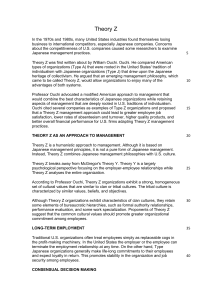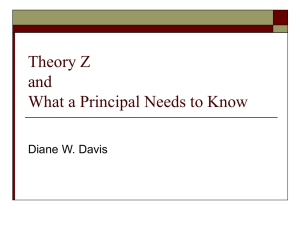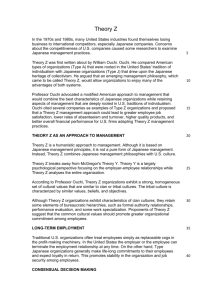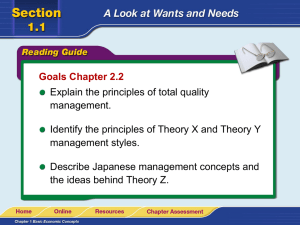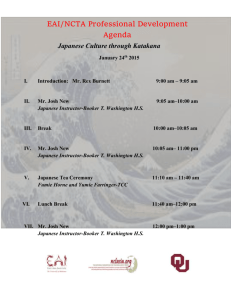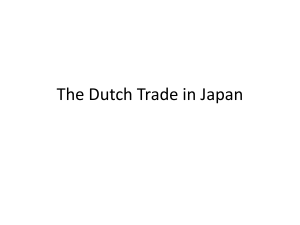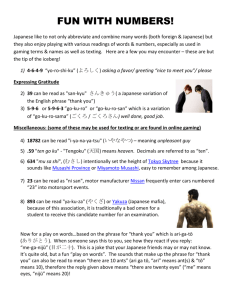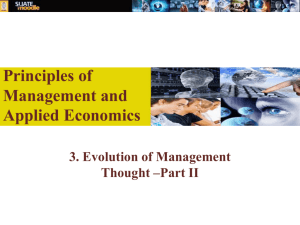Theory Z - Richview Business Department
advertisement
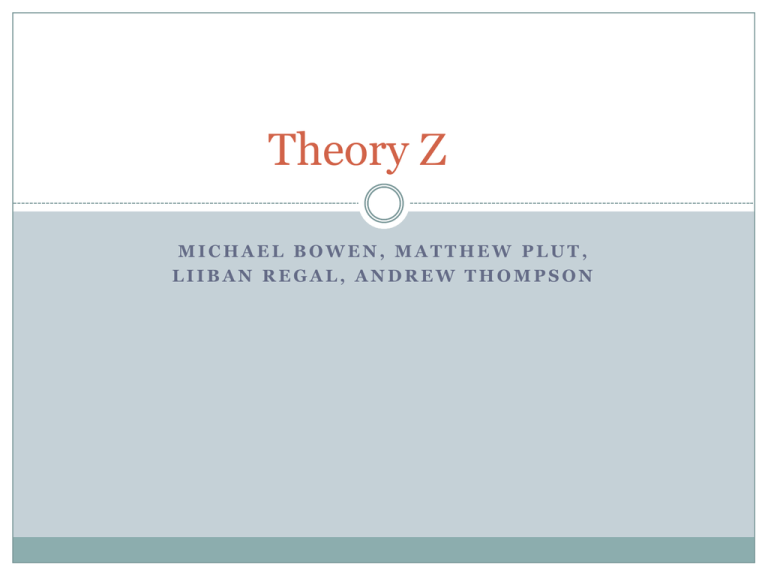
Theory Z MICHAEL BOWEN, MATTHEW PLUT, LIIBAN REGAL, ANDREW THOMPSON Name of Theorist • William Ouchi was born in 1943. He is an American Professor and an author in business management. He was born and raised in Honolulu, Hawaii. • Ouchi wrote a book called Theory Z How American Business Can Meet the Japanese Challenge. • The secret to Japanese success, according to Ouchi, is not technology, but a special way of managing people. "This is a managing style that focuses on a strong company philosophy, a distinct corporate culture, long-range staff development, and consensus decision-making" Theory Z •Employees are viewed as long-term assets who will stay with the same firm throughout their careers. They value a working environment where family, cultures, traditions and social institutions are regarded as equally important as the work itself. • The Japanese management style popularized in the 1980s that assumes employees have an interest in good working relationships with management and other employees. Management generally has high confidence in employees, who are encouraged to participate in the management decision making. Time Period of Development • Theory Z is the name applied to the socalled "Japanese Management" style popularized during the Asian economic boom of the 1980. • Japan had the world's second largest gross national product (GNP)—just behind the United States • and ranked first among major industrial nations in 1990 in per capita GNP at $23,801 Characteristics of Theory Z • Long-term employment and job security • Collective responsibility • Implicit, informal control with explicit, formalized measures • Collective decision-making • Slow evaluation and promotion • Moderately specialized careers Limitations of Theory Z • Theory Z can be difficult to implement because Japanese companies do not operate the same as companies in the United States and other nations. • Theory Z requires workers in different jobs, such as office workers and factory workers, to make decisions together. • Under Theory Z management, a worker also stays longer in a job without receiving a promotion. • A worker in another country who does not expect lifetime employment at the same firm may decide to switch employers.
